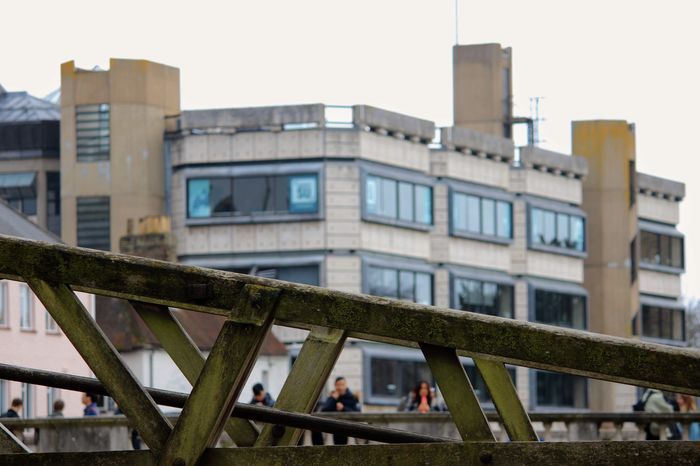Vintage Varsity: SU elections
Resident archivist Lily O’Sullivan reflects on how the SU has made Varsity headlines over the years

Founded in 1971, Cambridge’s Student Union (CSU), as it was then known, has never succeeded in spending much time away from the Varsity limelight. In the last year alone, the SU dominated sections from News to Comment, with stories ranging from the hunger strike of former Postgraduate Rep Vareesh Pratap to the resignation of the CEO last November after a tenure of just six months. As a new Lent term is set to bring a fresh round of campaigns and elections, Vintage Varsity looks back to some of the more memorable SU stories of the previous decades.
“Wes Streeting perhaps accurately dismissed the possibility of the ‘cult of the Wesident’”
Wes Streeting may now be best known for his role as Health Secretary, but it was his face that graced the front page in 2004 after being elected as CUSU President. Staring into the camera looking surprised at his win decided by “a mere twenty-two votes,” Streeting’s dynamic front page shot seems to hint at his future career - and perhaps future close calls. As a later Varsity interview noted, his election as MP for Ilford North in 2015 was cinched with a margin of just 589 votes. While he has presumably ditched such tactics since, two decades ago, Streeting opted for - in his own words - a “guerrilla-warfare” campaign to secure victory. If Streeting is to run for election again in the future, we can only hope we are spared from some of his promotional tactics; supporters shockingly dressed with “‘Wes for Pres’ stickers across their chests and bottoms” were seen canvassing the night before elections in Cambridge clubs.
While Streeting perhaps had to wait until his promotion to the Cabinet to be scrutinised for political missteps, other candidates in the 2004 election were not so fortunate. Welfare and Graduates Officer candidate Tim Stanley offered “coffee and a slap in the face” to his potential supporters. Now a columnist for The Telegraph, Stanley also admitted to being too drunk to write a manifesto before delivering a series of ever more insulting comments on women, suicide, and LGBTQ+ students, leading to him being prohibited from further hustings by CUSU to “protect students.”
“Varsity reminded readers that whatever their affiliation status, they could rest assured that their college supply of condoms would remain stocked by the SU”
Two years earlier, student politics caught the attention of national newspapers including The Guardian, not because of daring proposed changes or unusual election tactics, but the “rather nice set of cheekbones” possessed by Cambridge student union President Paul Lewis. This led to the “battle of the Oxbridge hunks” against Oxford Students’ Union President Will Straw. When questioned in 2004 whether his election would bring similar levels of swooning and celebrity, Wes Streeting perhaps accurately dismissed the possibility of the “cult of the Wesident.”
The SU has also graced Varsity for some more unflattering reasons over the years. With the same headline of “CUSU in crisis” appearing blazoned across front covers from 2006 (following a split amongst the executive over funding and structure decisions) and 2015 (after being bailed out by the University), it is clear the running of such an organisation hasn’t always been plain sailing. The rocky relationship between the SU and colleges is weaved throughout the Varsity archives, with disaffiliation being a common theme. Many referenda in which students could decide whether their colleges would abandon the central SU were carried out in the years following Britain’s vote to leave the EU - leading to such catchy political portmanteaus as “Pexit” and “Quexit”. Reasons have ranged from financial motives to concerns over the uncommunicative or poorly managed nature of the SU. Colleges and their JCRs expressed such concerns in a variety of manners, with a JCR member of Fitzwilliam College in 2014 expressing their disdain for the CUSU before telling them to “put that in your pipe and smoke it.”
A 2016 article on the relative benefits of SU affiliation weighed up the advantages of membership such as JCRs being able to vote on the SU Council, while reminding readers that whatever their affiliation status, they could rest assured that their college supply of condoms would remain stocked by the SU. Not all disaffiliations signalled a permanent break up, with Trinity voting to reaffiliate in 2007. With a turnout of only 20 voters, Varsity labelled the referendum as a show of “absolute apathy” from students. The subject of low student engagement doesn’t seem to have been confined to the archives either; the current Undergraduate SU officer, Sarah Anderson, was elected with just 1400 votes.
While the last year of the SU may have seemed to have brought more stories and scandals than ever, looking through the Varsity archives may suggest this is nothing new. With a new series of campaigns, manifestos, and elections to look forward to, we can only wait and see how the SU will hit the headlines in 2025.
Want to share your thoughts on this article? Send us a letter to letters@varsity.co.uk or by using this form.
 News / Candidates clash over Chancellorship25 April 2025
News / Candidates clash over Chancellorship25 April 2025 Interviews / Dr Ally Louks on going viral for all the wrong reasons25 April 2025
Interviews / Dr Ally Louks on going viral for all the wrong reasons25 April 2025 Music / The pipes are calling: the life of a Cambridge Organ Scholar25 April 2025
Music / The pipes are calling: the life of a Cambridge Organ Scholar25 April 2025 News / Cambridge professor paid over $1 million for FBI intel since 199125 April 2025
News / Cambridge professor paid over $1 million for FBI intel since 199125 April 2025 Arts / Plays and playing truant: Stephen Fry’s Cambridge25 April 2025
Arts / Plays and playing truant: Stephen Fry’s Cambridge25 April 2025






